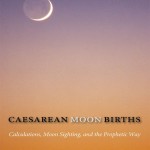-
Clarification: On the boundaries of da’wa
By Sh. Abdal Hakim Murad
Categories : Inter-Faith, Islam, Miscellaneous
Allahumma salli ala sayyidina Muhammadin wa-alihi wa-sahbihi wa-sallim
As-salamu alaykum.
Around two weeks have passed since the ‘Happy British Muslims’ video was posted on YouTube, and our community has found itself sadly confused and divided. The makers of the film, whoever they may be, have clearly come under heavy fire as well as receiving fulsome compliments. Praise and blame have come from Muslims and non-Muslims alike, and the complexity of the matter has been compounded by the fact that extreme Islamophobes, and some members of our community, seem to dislike the film in equal measure. This is singular in itself; but beneath the sound and fury it is still clear that the clip has reached and softened some non-Muslims, and also some Muslims who have grown alienated from the community; and this should be registered with care.
Let us start by considering the context. Across the Western world we face a steadily growing number of enemies. Confronting these enemies – the ilk of Geert Wilders, Siv Jensen, and Heinz-Christian Strache – whose policies need to be familiar to each and every Muslim who cares about his survival in Europe, is surely a vital strategic necessity. Our demographic and cultural situation is provoking an acute crisis in some non-Muslim mentalities, which see that Islam is almost certainly the most widely-practiced religion in Paris, Berlin and several other European capitals. This is a historic opening for us, and a golden chance for da’wa in places unreached by earlier generations; but it also underlines our vulnerability. We must throw dust in the faces of our enemies and divide their counsels; and what better way of doing so than by swerving around their defences, and landing shrewd blows on their most cherished assumptions?
Let us not imagine that anyone will support our communities in their precarious situation. The ‘Islamic world’ will not come to our aid: we stand on our own. Who amongst us looks to the ‘Islamic Republic of Pakistan’ for protection and advocacy? Or to Egypt and its institutions, now in the grip of a vile military dictatorship? Or to Saudi Arabia, which is gleefully bankrolling that dictatorship? Perhaps Hindus in Britain may feel supported by Indian diplomacy; while Jews are supported by the Israeli ambassador; but of the sixty Muslim countries, not one is likely to come to our aid. In this fragile and confusing situation we have only ourselves and our Lord.
Domestically the worried but ever-uncomprehending mandarins continue to work away with their dangerously blunt instruments, and have managed to imply that they regard us primarily as a security issue and as a problem. Stop-and-search powers, the worrying new head of the Charities Commission, and David Selbourne’s alarmist prating in the New Statesman, all steadily exacerbate the atmosphere of scrutiny and presupposition. We agree that we need to grow closer to our neighbours, since isolation is not religiously mandated and obstructs da’wa; but greater conviviality and trust will only happen if the process respects our terms, and is not manipulated by the state in clumsy techniques which are already multiplying suspicion and conspicuously backfiring against the principle of community cohesion. If they wish us to be peaceful, they should leave us in peace.
With all these challenges it is clear that we should hold together to Allah’s rope. There are no others available! This means some semblance of unity, which in turn means respect for difference. The sectarian and fiqh disputes which weaken us seem to be growing in bitterness, and can we deny that this gives joy and hope to our adversaries?
Perhaps there are lessons to be learned from the past, from other ages when collective breakdown was symbiotic with divided opinions. Consider the Ottoman Empire, in periods when the extreme corruption of some sultans such as Sultan Ibrahim I ‘the Mad’ allowed weaknesses to spread through the length and breadth of Muslim society. Careless policies had resulted in economic and political humiliation, so that the price of bread was driven up by a blockade by Christian powers at the gates of the city. Delinquent religious views and practices were widespread. As a crisis broke two great preachers dominated the Caliphal capital, adopting very different approaches. There was Kadi-zade Mehmet, who preached at the Bayezit Mosque. His fierce attacks on various Muslim points of view and lax practices resulted in mob violence, the burning of taverns, and fights between scholars. He was challenged by Abdulmecid Sivasi of the Sehzade Mosque, who believed that a furious insistence on a single point of view and a tough attitude to the ways of ordinary believers would further weaken the Muslims. His was the view of the famous early hadith scholar Sulayman ibn Tarkhan, pupil of Anas ibn Malik, who insisted that ma aghdabta rajulan fa-qabila minka: ‘no man will accept your view if you have angered him.’ In time, Kadi-zade’s movement faded away, as its angry intolerance was accepted neither by the masses nor by the great ulema. Then as now the umma knew that Islam is the way of brotherhood: the greater and more erudite the scholar, the more willing he is to respect difference and to find excuses for others (iltimas al-‘udhr).
Muslim unity comes not from the triumph of a single view, but from courteous respect for difference. In our extreme times this must mean an insistence on husn al-zann – giving other Muslims the benefit of the doubt – and this should particularly apply in the judgements we make of non-scholarly Muslims. Great scholars have told me that ours is an age in which tahayyara fihi’l-‘ulama (‘the scholars are bewildered’). How easy and seductive is the path of deflecting the confusion by pretending that one’s own views alone are right and faithful! Most of the Muslim world’s misfortunes stem from this. Iraq was wounded by the 2003 invasion, but the damage done by subsequent Muslim mutual intolerance was far worse, and turned an opportunity into a tragedy. Intolerance between various Muslim opinions is now dividing the opposition in Syria; in Pakistan, the mullahs are increasingly unpopular because of their bitter and sometimes murderous infighting. Where is this leading us?
Aware of the weakness of the masses and the dangers of division, the scholars have opposed narrowness for a very long time. Imam Birgivi, who lived at the outset of the Kadi-zade controversy, wrote this in his Tariqa Muhammadiyya: ‘in our age it is not possible, not possible, to hold to the more precautionary view (al-ahwat) in giving fatwa’. He wrote ‘Not Possible’ twice! Ours is a time in which we must be rigorous with ourselves, and strive to know what is right, while being endlessly forgiving with other Muslims, for as long as there is some possible ambiguity or excuse which could be made.
One of my teachers, Shaykh Abdul Wadod Shalabi (d.2008), was fearless in calling for justice in Egypt. As well as becoming Deputy Shaykh al-Azhar he was imprisoned for five years by the regime. Once he came to London for a conference. I went with him to a newsagent where he needed to buy something. He looked around, and saw the sights which make us flinch but which we are used to: the adult magazines, the bottles of Bacardi, the scratch cards. Behind the till sat a depressed-looking Asian woman.
The shaykh was a man with firm views about what was right. He had gone to prison for them! But his response to this scene startled me. He said nothing about the horrors which were all around. Instead he kindly talked to the woman and asked what her name was. It sounded like a Muslim name, and he gently conversed with her, affirming her identity; and then he left. So simple an encounter, but so effective! Where scowling and blaming would have driven her further into her shell, he gave her a moment of peace and a happy reminder that she was Muslim. For her, briefly, the sun came out. If there was a door for her back to religion, he had opened it for her, with that compassionate smile.
But is this kind of witnessing the only way amr bi’l-ma’ruf can be in our time? I find much of interest in the discussions of aya 105 of Surat al-Ma’ida:
O you who believe! You have charge of your own souls. He who errs cannot harm you if you are rightly-guided. Unto Allah you will all return, and He will inform you of what you used to do.
Ibn Rushd al-Jadd, the teacher of al-Qadi Iyad. comments that a time of fitna will come when we should avoid any reference to the faults of others, because those comments will either be ignored or will be counterproductive, increasing the fitna. He adds that given the corruption of his age, that time might already have arrived (wa ma ashbaha zamanana bi-hadha’l-zaman). He was writing nine hundred years ago!
Has that time come now? Clearly we still cannot be sure. And in fact, there is much munkar that can and should be criticised. How and where we do so, however, has become a subtle and dangerous matter, with so many Muslims and potential Muslims fleeing us because of our rancorous absolutism.
It was by a mercy from Allah that you were gentle with them. Had you been fierce and hard of heart, they would have scattered from round about you. (3:159)
Looking at our discussion groups, how many would conclude that Muslims have clearly found the truth, being happy in their agreement on essential matters, and courteous in allowing for difference in all else? The principles of fellowship, of mutual love and of da’wa seem to be low on our list of priorities, whatever we might think. Towards the end-times, ‘everyone with an opinion will be delighted with his opinion’ (hadith in Abu Daud). The reference clearly is to the ego’s attachment to a particular point of view.
These are the notions which have moved across my mind in the last few days. I regret those who vehemently attacked the video; and also those who vehemently attacked those who attacked it. Sohaib Webb has hit the right note, I think. There are angry and discourteous absolutists on all sides: it seems that one does not have to be a Wahhabi to be a Madkhali, not by a long distance! I honour those who judged it inappropriate; but not those who overreacted.
There is much in the video that I would personally take issue with, as the kind of conservative who values the hadith, so quintessentially Muslim, that insists that ‘every umma has a particular quality, and the quality of my umma is modesty.’ (Ibn Majah) Gravamen and public restraint are surely part of the charm of Islam. In an age of unrestraint, we need to consider carefully the ways in which our traditions of modesty, for both genders, might be used as instruments by which a sad humanity can be called back to the truth. Modesty should not obstruct da’wa, but should facilitate it.
That would be a matter for the ulama. For them, too, is the knotty question of priorities: if some, particularly teenagers, seem to be reachable only by certain contemporary styles, as in the case of those who come to Islam through hip-hop and rap, then what are the formal boundaries which must apply in this long-range and potentially mass da’wa? We need a congress or consultation of some kind which can discuss these matters in full view, and guide these young people. I spend hours every day with a wide range of teenagers and other young adults, Muslim and non-Muslim; and I know how real is the spiritual need: but what are the proper paradigms for da’wa in our emergency situation?
There is the further question of invading another’s culture: to what extent can we use the cultural or aural forms of others? We should not be xenophobic or fearful here. After all, we like tajwid in the maqams, although the maqams are from ancient Persia: does that mean that when we recite the Qur’an according to the rules of Nihavend that we are ‘imitating the unbelievers?’ No doubt the major ulema will explain the usuli paradigms and limits for what Shaykh Umar Abdallah calls the ‘cultural imperative’:
So many of our scholars attend jamboree conferences arranged by various regimes, which end with platitudinal resolutions about ‘peace and moderation.’ I think we should stop doing that now. How useful it would be if our scholars could attend a different event, to learn of our situation, hear the different viewpoints, and explain how our response ought to be, as a cool Shari’a judgement, far from panic and fearfulness.
I have no tie myself to this video, not having known the song or even heard of the singer before the final version appeared, or played any role in its editing. I did not know what it was! I appeared to be ‘happy’ in my own way, not in the way of the others, however that may be judged. My own sense in the arguments over instrumental music of various kinds is that the never-ending debate can be shortcircuited quite simply by remembering that the human voice is the most beautiful of instruments, and that by cultivating its correct harmonies we can produce genuinely spiritual sounds that are superior to anything that an instrument could generate. I have tried to do this with some Western folk harmonies, as in the second song here:
https://www.youtube.com/watch?v=eKF675wknVM
Can we improve this, so that it ‘goes viral’? Not in my hands, or with my voice! But perhaps some gifted young person can make it happen.
May Allah turn in forgiveness towards this umma, best of all ummas, give us sound knowledge of usul as well as furu’, heal our hearts, bring us together, and teach us wisdom in this difficult time. Amin!
Abdal-Hakim Murad, May 2014







